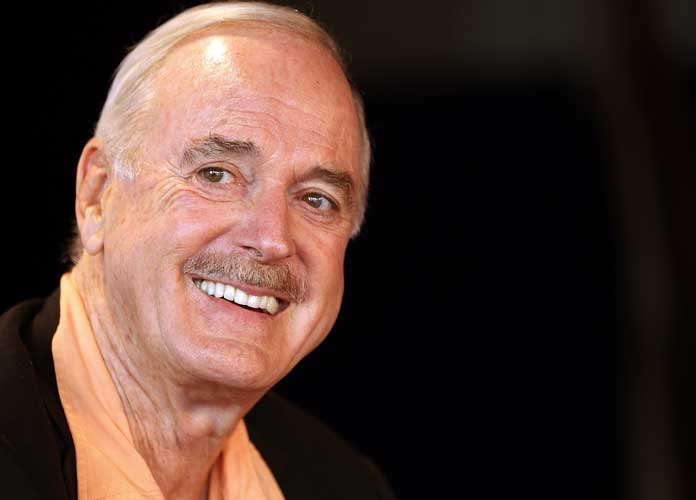John Cleese Says ‘Woke Rules’ Caused Him To Cancel Cambridge University Talk
82-year-old British actor and comedian John Cleese was slated to give a talk at Cambridge University on November 12th, but rescinded his plans to visit after another speaker was blacklisted from the institution for performing an impression of Adolf Hitler. Andrew Graham-Dixon, an acclaimed art historian, reportedly assumed a German accent and imitated the dictator on a recorded video call during an event sponsored by the Cambridge debate society.
Cleese himself impersonated Hitler in the 1970’s sitcom Faulty Towers, which is often recognized as a contentious yet critically heralded work of the Monty Python franchise. In a pair of tweets announcing the cancelation of his talk, Cleese stated that disappointed fans “can find a venue where woke rules do not apply”, and that he is “blacklisting [him]self before someone else does”.
Cambridge Union, the organization that planned to sponsor Cleese’s talk, is a free speech and debate society, and also Cambridge’s largest society boasting over 70,000 members worldwide. It is very likely that Cambridge Union would not have canceled Cleese’s talk on their own accord, potentially because of the reality that 50 years have passed since Fawlty Towers aired, giving a historical perspective to the comedy that was permitted at the time.
Additionally, the actor is notorious for his anti-‘cancel culture’ stance, so the Union potentially sought Cleese’s nuanced, ‘devil’s advocate’ angle on the topic. Furthermore, when Andrew Graham-Dixon performed his unsavory impression, it was reported by an event overseer that he was “very drunk”, and likely did not attach the same satirical value to his impression that Cleese intended to convey in Fawlty Towers.
Whether or not Cleese truly believed that “someone else” would have blacklisted him for his impression, it is clear that he received a sense of personal justice upon withdrawing from the event. Ironically, the actor was set to film material during his Cambridge visit for his upcoming Channel 4 docuseries entitled “Cancel Me”. This series will feature Cleese interviewing various subjects that claim to be victims of ‘cancel culture’, and attempting to understand “why a new ‘woke’ generation is trying to rewrite the rules on what can and can’t be said”.
John Cleese has been very vocal about his concerns that ‘cancel culture’ is harmful to creativity, stating that he doesn’t “think we should organize a society around the sensibilities of the most easily upset people because then you have a very neurotic society”. Now that Cleese has effectively canceled himself, we’ll see if it genuinely stifles his creativity or merely serves as “evidence” to back up his convictions.
RELATED ARTICLES
Get the most-revealing celebrity conversations with the uInterview podcast!









Leave a comment